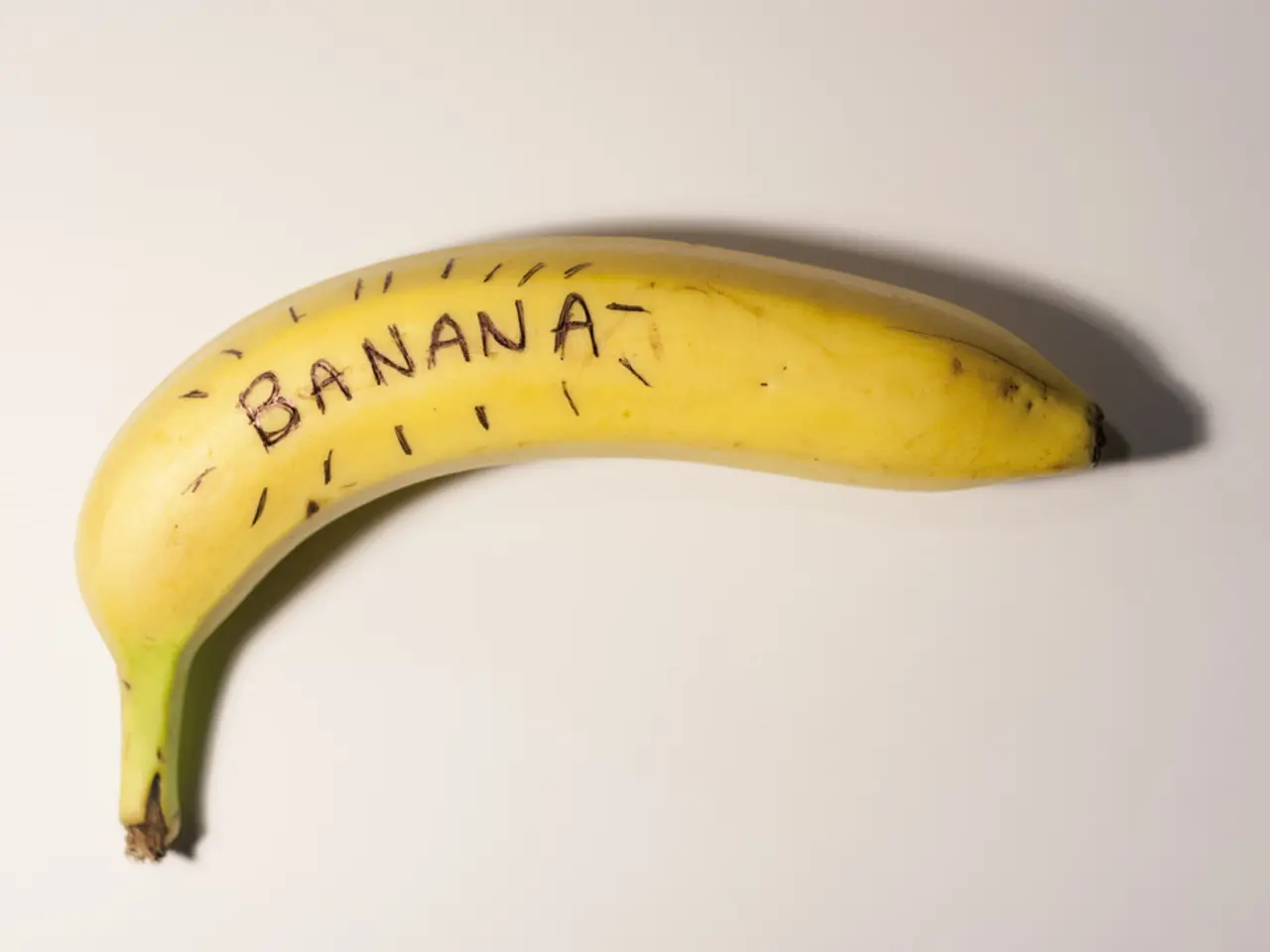Uncovering Banana's Hydration: The Real Water Content within a Banana
Bananas, a popular fruit known for their versatility and delicious taste, are not only a delight to consume but also offer significant hydration benefits. While they may not top the list of the most hydrating fruits, bananas still provide a substantial percentage of water by weight.
On average, a banana contains about 75% water. This makes bananas moderately hydrating, but they fall short compared to other fruits known for their high water content, such as watermelon (92%), grapefruit (91%), and strawberries, which generally exceed 90%[1][4].
Despite their lower water content, bananas boast numerous nutritional advantages. They are rich in potassium, vitamin B6, and vitamin C, making them an excellent choice for replenishing electrolytes and supporting overall health, especially post-exercise[1][2][4].
The water content of a banana plays a crucial role in its texture, with well-hydrated bananas being smooth and creamy. Additionally, the water acts as a solvent, facilitating the absorption and utilization of nutrients within the banana.
Bananas also contain prebiotic fibers that nourish beneficial bacteria in the gut and promote regular bowel movements. Fiber, found in abundance in bananas, promotes healthy digestion and helps regulate blood sugar levels.
Bananas offer a unique combination of hydration, electrolytes (especially potassium), and carbohydrates. The ripeness of a banana affects its water content, with riper bananas having a higher percentage of readily available water.
However, it's important to note that the water content of a banana can be influenced by factors such as ripeness, variety, growing conditions, storage, and climate. For instance, plantains, a type of banana, have a lower water content due to their higher starch content.
Eating a banana can contribute to your daily hydration needs, especially after physical activity or in warm weather. To maximize their hydrating benefits, consider consuming bananas alongside water or other hydrating beverages.
Bananas are a valuable source of vitamins and minerals as well. They are rich in vitamin B6, vitamin C, manganese, and fiber. Vitamin B6 is essential for brain development and function, while vitamin C supports the immune system. Manganese plays a role in bone health.
Green bananas contain more resistant starch, which acts as a prebiotic. Bananas grown in areas with ample rainfall and consistent irrigation will have a higher water content than those grown in drier regions.
In conclusion, while bananas may not be the most hydrating fruit, they still provide a good source of hydration at 75% water by weight. Their unique nutritional profile, including potassium, vitamin B6, vitamin C, and fiber, makes them a valuable addition to any diet, particularly for athletes and those seeking to maintain optimal hydration levels.
References: [1] Nutrition Data. (n.d.). Bananas. Retrieved from https://nutritiondata.self.com/facts/fruits-and-fruit-juices/2044/2
[2] United States Department of Agriculture. (n.d.). Potassium. Retrieved from https://www.ars.usda.gov/nutrient-data/Ultimate-Reference-Database/Basic-Report/1035-66060
[4] Harvard T.H. Chan School of Public Health. (n.d.). Bananas. Retrieved from https://www.hsph.harvard.edu/nutritionsource/food-features/bananas/
[5] Food and Agriculture Organization of the United Nations. (n.d.). Water content of food. Retrieved from https://www.fao.org/3/a-i4408e.pdf
Read also:
- Explored the Popular Health Assessment with a Queue of 100,000 Aspiring Participants - Here's My Unadulterated Opinion
- Hearing impairment condition: Recognizing symptoms and management approaches
- Signs of Cataracts Emergence: Impact on Vision and Further Details
- Thrombocytopenia in Large Scale: Root Causes, Identifiable Symptoms, and Available Treatment Options





